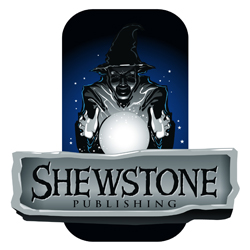“Everyone is responsible for helping to create a good gaming experience for everyone, including themself. We call this the Platinum Rule.”
The alchemical symbol for platinum. Credit: Kwamikagami, CC BY-SA 4.0 ,via Wikimedia Commons
In RPG Imaginings’ very kind overview video of Magonomia®, the host especially praised the Platinum Rule (quoted above). The host presumed the Platinum Rule came from Fate™ rules, but actually it was created by Shewstone Publishing. It first appeared (with slightly different wording) in the Magonomia Starter Rules in 2019. We’re not especially concerned about claiming credit, though. We’re concerned about spreading the idea.
Why the Platinum Rule?
For the first edition of a tabletop RPG — or any edition, really — it’s important to tell the audience how to play. We want to get everyone on the same page, so to speak, so they can start off their new game with a shared understanding of it.
We thought long and hard about the single most important piece of advice we could give to prospective players and GMs, that would put them in the best position to have a good time with the game. The Platinum Rule is what we came up with.
Pathfinder Second Edition Has It
We wrote the Platinum Rule into Magonomia because we think it’s important. Between the five designers on the cover of Magonomia Core Rules, we’ve played a lot of editions of a lot of tabletop RPGs. Yet none of us (in 2019) could think of ever seeing this basic social rule written down in a game. Games have historically been light on writing down the social rules, though this is starting to change.
I was delighted to see Pathfinder Second Edition has the same principle (on page 8, under the heading “Gaming is for All”): “It is the responsibility of all the players, not just the GM, to make sure the table is fun and welcoming to all.”
It’s Obvious … or Is It?
It took a while for us to realize the importance and the power of the Platinum Rule. In my first ever interview about Magonomia with blogger John Sharpe, he was excited about the Platinum Rule and asked me about it. I was caught a bit off guard, not realizing what I had created. I gave an answer that was a bit wide of the mark. In hindsight, I wish I had thought to say why we put it in the Starter Rules: it’s the single best piece of advice we could give a gaming group.
I thought we were merely stating the obvious. Quite a few people have shrugged off the Platinum Rule, saying “that’s obvious.”
If it’s so obvious, why have I only seen it written down in two core books in my 40+ years of gaming?
I no longer think the Platinum Rule is obvious. It’s a cornerstone of the gaming group’s social contract. I suppose we can discuss whether it belongs in the group’s social contract or not, but I no longer accept “it goes without saying” as a valid dismissal of it.
The Platinum Rule is Open Game Content
Use the Platinum Rule in your game products or homebrew content. Both Magonomia and Pathfinder Second Edition are licensed under the Open Game License, so you’re invited and encouraged to use, remix, and modify it under the terms of that license (see the respective rule books for the exact license terms).
Additional Licenses
Update August 2024: Now that Wizards of the Coast has turned the Open Game License into toxic waste, the Platinum Rule is also co-licensed under the following licenses. You may publish and reuse it under any of the following:
Open Game License 1.0a (not recommended)
Creative Commons Attrribution-ShareAlike 4.0 International (CC-BY SA 4.0)
Open Roleplay Creative (ORC) License





